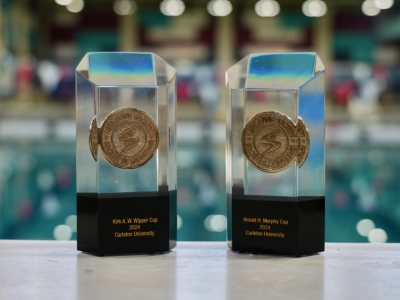Written By: Katrina Finnigan
With the winter months rolling in, the idea of snuggling up on the couch at the end of the day can be a tempting one. But if you’ve been sitting in class or at work all day – you might want to reconsider. Although taking the time to sit back and put your feet up can be needed at times – in excess, it can actually do more harm than good.
Harmful Effects of Sitting for Too Long

Slows Digestion
I find if I’m sitting for long periods of time – be it in class, at work, or on the couch – I’m generally snacking on something. This is bad news according to the Microbial Ecology in Health and Disease. Sitting down after you’ve eaten causes your abdominal to compress and in turn, slows down digestion. Slow digestions can lead to several little issues such as cramping, bloating, heartburn, constipation, and general weight gain if this becomes a habit.
Posture Problems
It’s no surprise to most of us that sitting for long periods of time can lead to an aching back, neck and shoulders. However, it can lead to poor posture which in turn can grow into back problems or strains in your neck and shoulders. The longer we sit, the more likely we are to slip into a slouch or lean. While sitting at a computer it is common to hold your neck and shoulders forward which can cause strain in these areas if held for extended periods of time. Sitting also puts more pressure on your back than standing. Your vertebrae are designed to expand and contract as you move, when sitting for long periods of time these disks become compressed and can lose flexibility – which may put you at a higher risk of a herniated disk.
Leg Disorders

You may have heard the expression “use it or lose it” – this statement rings true when it comes to your legs too. Lack of activity and excessive sitting can lead to poor circulation, swelling, blood clots, varicose veins, weak bones, and in extreme cases – osteoporosis. Staying active and making sure you keep your blood circulating is important and fairly easy. Remind yourself to get up during commercial breaks or to take a walk once an hour. The break will not only let you stretch your legs and get things moving, but will have you feeling mentally refreshed as well.
Weakened/Tightened Muscles
In general, the more active you are, the stronger you are likely to be. But keeping active doesn’t just keep you strong, it keeps you moving – which in turn keeps you more flexible. Think of your first week back at the gym after some time off. Resting after an intense workout may feel relaxing – but if you forget to stretch things out your muscles are bound to feel pretty tight, making you feel extra sore the following day. Though, it’s not just your legs that suffer when you sit. Standing and walking requires you to tense and use various muscles that you don’t while sitting. Prolonged sitting can cause muscle degeneration in your abdominals, hips, glutes, calves and more.
Avoiding the Dangers of Sitting
Many of us are placed in situations where we are not only expected, but required to sit for long periods of time – often on a daily basis. Although we may be limited, there are a few simple ways to ensure that you can avoid these dangers:

- Take the stairs whenever you can
- Walk over to talk to co-workers or classmates rather than sending an e-mail
- Park farther away
- Take the longer route to your destination
- Use a chair without an armrest (this forces you to sit up straighter)
- Use a fitness band or pedometer to help set goals
- Remind yourself to move around for at least 10 minutes each hour
- Take a walk on coffee breaks
- Squeeze in some time at the gym or take in a fitness class over lunch or before/after class
- Stretch often
- Use an exercise ball as a chair
- Practice small leg-raises under your desk rather than using a footrest
These may seem like small changes or goals, but they are attainable goals you may set for yourself to help you stay in shape and keep your body in peak condition.


